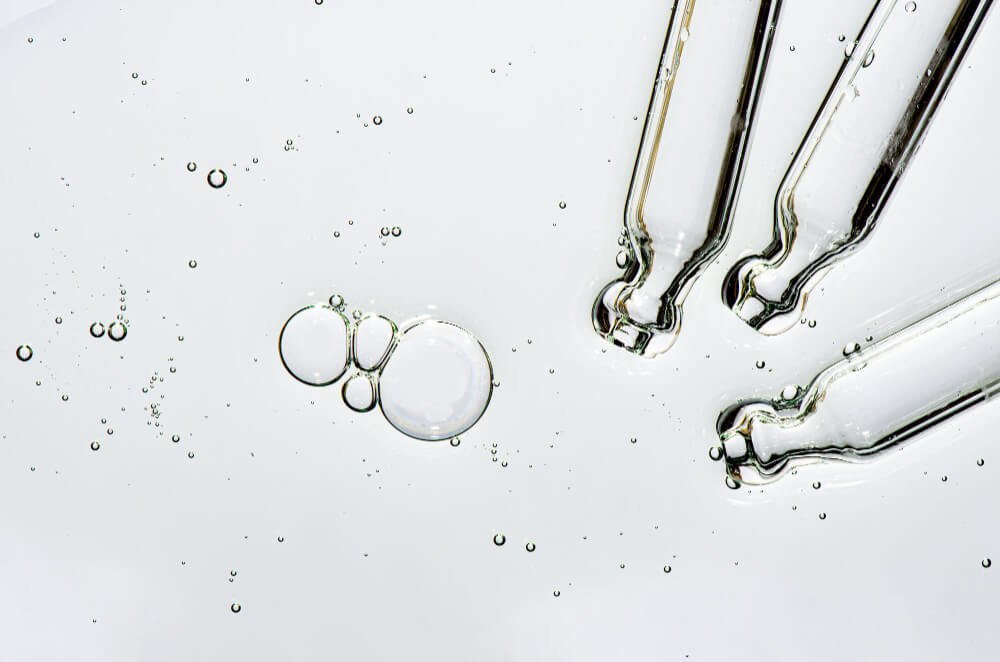
Glycolic Acid vs Salicylic Acid: Which is best for your skin type?
Curious about glycolic acid vs salicylic acid? If you want to know what actually these ingredients are good for and whether you should use them or not, then you’re in the right place. In the skincare world, there is a debate that seems to be the centre of attention always. Yes, you’re right we talking about no ne other than glycolic acid and salicylic acid.
And, we understand choosing between them can be a little tricky as both are the powerhouse of skincare ingredients that work wonders. So, understanding the difference will surely help you understand which one is better for your skin type.
Glycolic Acid: Everything you should know
First, let me tell you we can sit here and explore all day about the wonders of glycolic acid, and even there would be more. So, we’re only discussing about the basics of glycolic acid that you should know. Glycolic acid (AHA) is an alpha-hydroxy acid which is naturally found in sugarcane and some fruits. But it can also be developed in the laboratory.
Also because alpha-hydroxy acids are water soluble which means they dissolve best when paired with water. This glycolic acid dissolves and helps to remove dead skin cells on the outer layer of the skin. And, helps you reveal a brighter and softer complexion. Because of its small molecular size, it allows it to pass the skin barrier with ease.
There are various reasons why glycolic acid is found in every cleanser, as it’s the ideal ingredient that reacts with dead skin cells. Your face will appear brighter, youthful and radiant after the removal of dead skin cells. Your face will feel more soft after your cleansing routine.
Other benefits of using glycolic acids vs salicylic acids are:
- Helps brighten the complexion
- Tighten the skins
- Reduces sun damage, hyperpigmentation, and acne marks
- Helps to manage acne breakouts by reducing inflammation, swelling and irritation
- Reduces the appearance of ageing, wrinkles, and fine-line

Salicylic Acid: Everything you should know
Salicylic acid is a well-known Beta Hydroxy Acid (BHA) which comes from the bark of a willow tree. This acid deeply penetrates pores to dissolve the oil and bacteria that cause acne while also reducing the inflammation.
Like glycolic acid, salicylic acid also exfoliates the skin. That being said, salicylic acid works in a slightly different way. Since BHAs are oil-soluble, they help to dissolve the oil and reduce sebum production. And, once there is less oil to fight, this salicylic acid reaches deeper into the pores and unclogs them.
Other benefits of using the salicylic acid vs glycolic acid are:
- Helps control oily skin
- Reduces hyperpigmnetation
- Also, helps to smooth and brighten the skin
- Reduces the blackheads
- Manages acne breakouts by clogging pores
Difference Between Glycolic acid and Salicylic acid
As we have mentioned already, the major difference between glycolic acid and salicylic acid is its size. Glycolic acid is a small molecule which easily goes deeper into the skin. Whereas, salicylic acid is a larger molecule which stays on the surface of the skin. Salicylic acid is a BHA, while glycolic acid is an AHA.
Also, salicylic acid is oil-soluble whereas glycolic acid is water-soluble. This means that salicylic acid exfoliates the skin getting deep into the clogged pores, where glycolic acid works better on the surface of the skin. And, glycolic also helps you to remove dead skin cells and brighten the appearance.
And, yes another difference between glycolic acid vs salicylic acid is the skin type it was made for. While both of these ingredients work well on any skin type, there are a few tips that will help you gain more benefits.
Glycolic acid works for what skin type:
- Sun-damaged skin: It helps you reduce hyperpigmentation and age spots
- Normal-dry skin: It helps to uplift the natural moisturizing factors within the skin
- Ageing skin: Works wonders in reducing the appearance of fine lines and wrinkles
Salicylic acid works on what skin type better:
- Acne-prone skin: It reduces inflammation and penetrates clogged pores
- Oily skin: It dissolves the sebum and reduces oil production
Can I combine Glycolic acid vs Salicylic acid to use?
Usually, both glycolic acid and salicylic acid are safe to combine, just pay attention to whether it shows side effects on your skin or not. Be very mindful and careful and don’t overdo it. If your skin can handle both glycolic vs salicylic acid together, it’s great for you.
Because combination of both means a powerful duo which works to minimize and treat acne while exfoliating and also reversing dullness. Also, because you’re using two exfoliating properties at the same time you will experience dryness, irritation, redness, etc.
So, if you want to try both together remember to be slow at first. Rather than using the combination daily start by using once every two weeks or in one week. See how your skin is reacting to the combination, whether it’s safe to use or not.
Glycolic acid vs Salicylic acid: Which one is better for acne?
Both glycolic acid vs salicylic acid work wonders when it is about acne. However, using salicylic acid is more beneficial.
Because as we have mentioned salicylic acid is a BHA, it decreases the oils in the skin. This is very important as these oils can clog pores and lead to pimple breakouts. And, as we already know excess oils are the common cause of acne as they promote bacteria.
Moreover, salicylic acid also has anti-inflammatory properties and exfoliating qualities which are also great ingredients to fight acne.
Glycolic acid vs Salicylic acid: Which one is for you?
You know that glycolic acid and salicylic acid are both skincare heroes when it comes to treating the correct complexions. If you’re looking to lighten hyperpigmentation or brighten a sun-damaged complexion, glycolic acid is the right choice. On the other hand, salicylic acid helps you treat stubborn breakouts, oily skin, congested pores, etc.
You must be wondering what to do if you have combination skin, so which one is right for you? If so, that’s perfectly fine if you still do not understand, please consult your doctor.
At the end of the day always remember, the key to beautiful skin isn’t in a quick fix. It takes all i.e., patience, intention, healthy lifestyle and the right ingredient for your skin type. So, if neither of these ingredients works for you, rather than trying everything continuously one after another, consult your doctor.
FAQ’s
How do glycolic acid vs salicylic acid differ from each other?
Glycolic acid mainly works on the skin’s surface to improve skin texture, reduce fine lines, and promote even skin tone. Whereas salicylic acid targets deeper layers, addressing clogged pores, blackheads, acne, etc.
Which acid is better for sensitive or dry skin?
Glycolic acid is better for sensitive or dry skin, as it hydrates and exfoliates gently. However, always start with a low concentration to minimize irritation.
Which acid is more suitable for oily or acne-prone skin?
Salicylic acid is more suitable compared to glycolic for oily or acne-prone skin due to its ability to reduce excess oil. It also prevents breakouts by deeply penetrating pores.
Are there any side effects of using these acids?
Both acids can show some side effects such as irritation, redness or dryness especially if you’ve sensitive skin.
How do I use glycolic acid vs salicylic acid in my skincare routine?
You can use these acids before cleansing and before moisturizing. The key is to introduce the acid slowly to your skin and start by using it only 2-3 times per week. So you can increase your amount slowly based on how your skin reacts.














